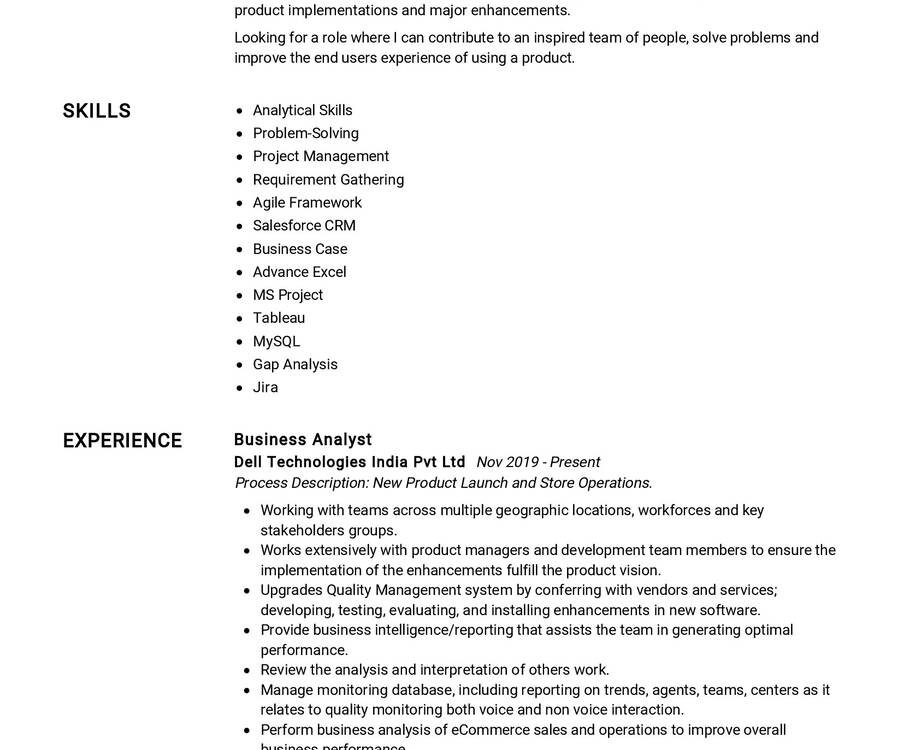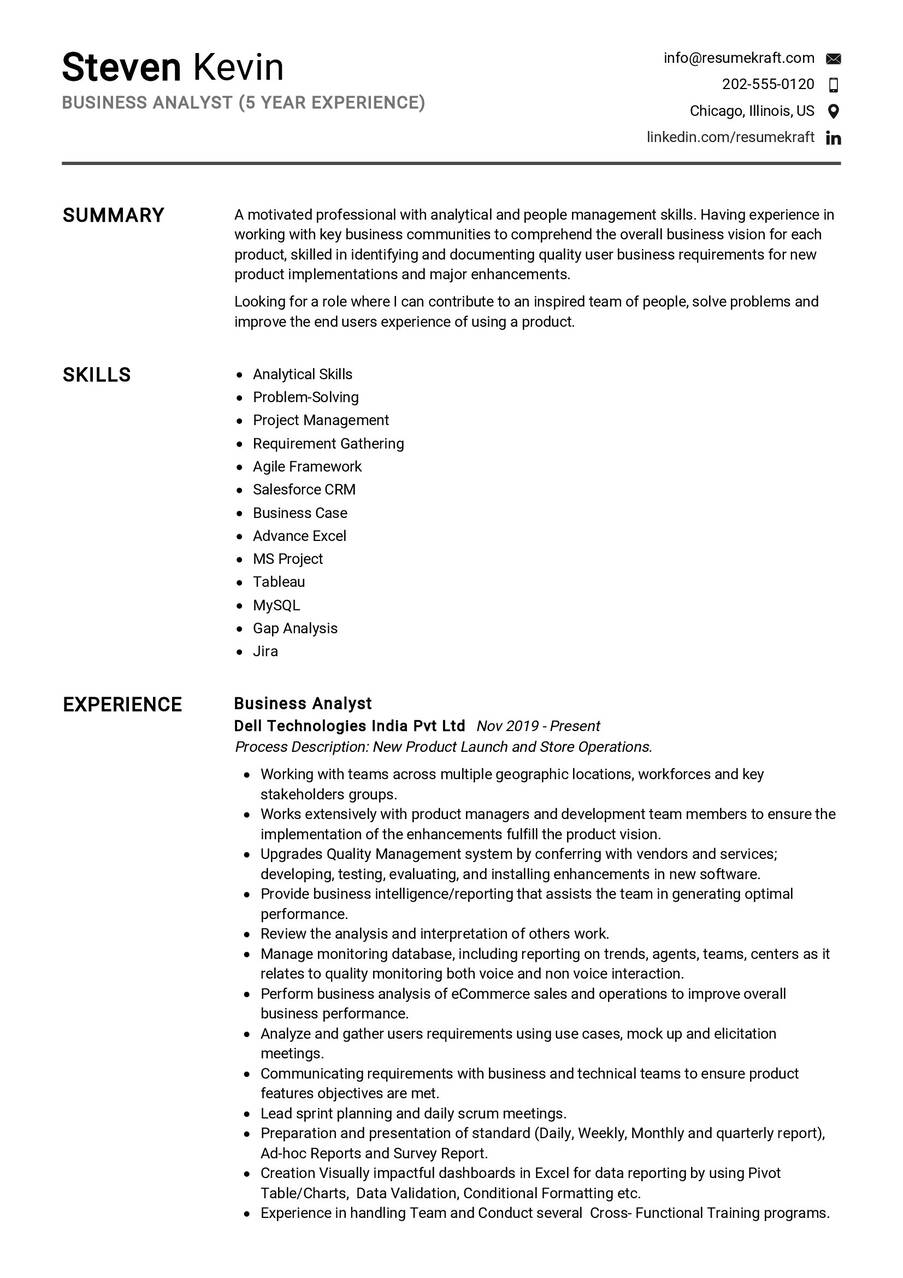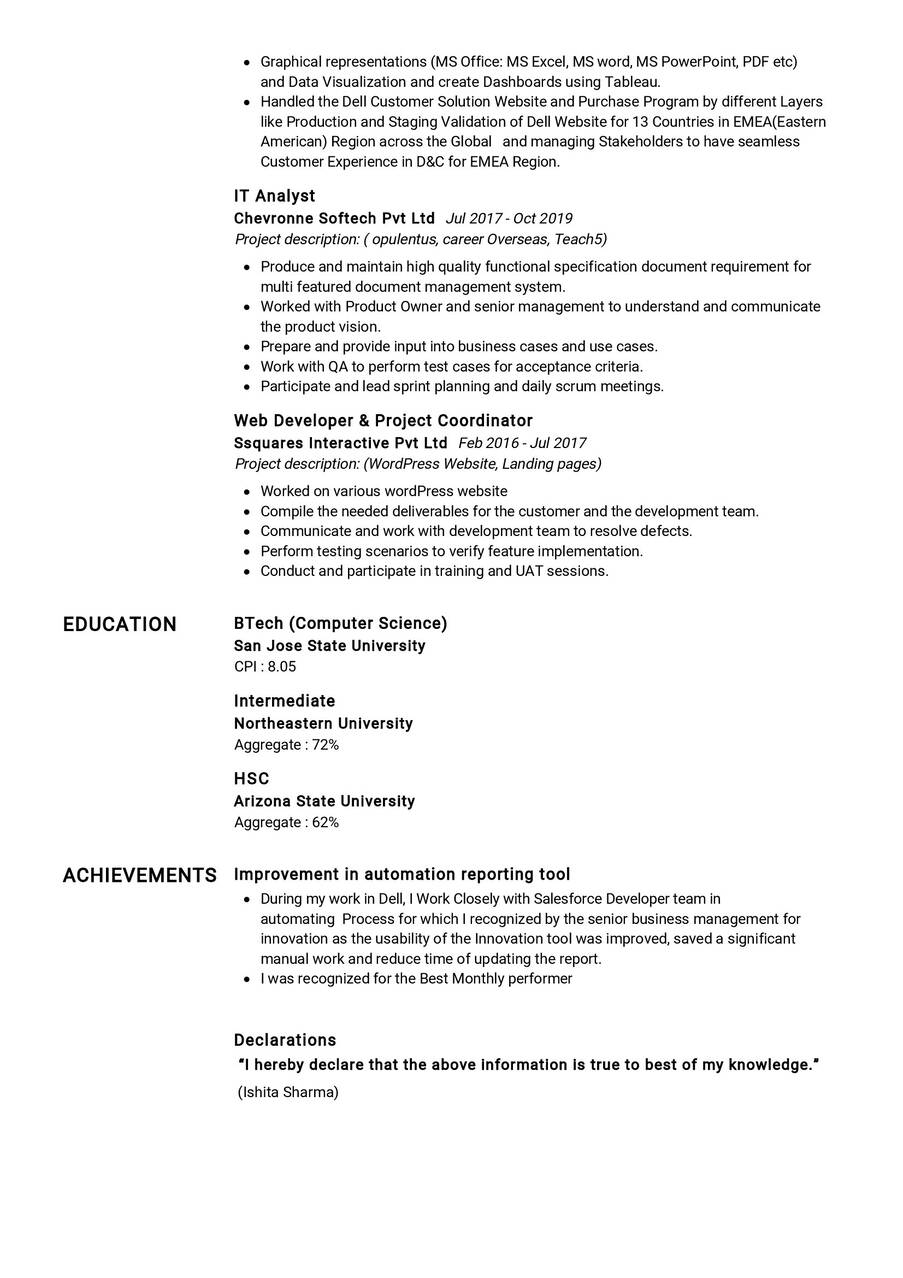Understanding the Role of an IT Business Analyst
In the dynamic landscape of IT, the position of an IT Business Analyst holds a crucial role in bridging the gap between technology and business objectives. This article explores the multifaceted responsibilities and qualifications required for individuals aspiring to become successful IT Business Analysts.
Key Responsibilities of an IT Business Analyst
An IT Business Analyst plays a pivotal role in analyzing business processes, identifying opportunities for improvement, and facilitating the integration of technology solutions. Let’s delve into the key responsibilities that define this role:
- Conducting thorough analyses of current business processes to identify inefficiencies and areas for improvement.
- Collaborating with stakeholders to gather and document business requirements for IT projects.
- Translating business requirements into functional specifications for development teams.
- Facilitating communication between business stakeholders and IT teams to ensure a clear understanding of project goals.
- Performing impact analyses to assess the effects of proposed solutions on existing systems and workflows.
- Assisting in the testing and validation of IT solutions to ensure they meet business requirements.
- Providing ongoing support and communication throughout the project lifecycle.
Each responsibility is a thread in the tapestry of an IT Business Analyst’s role, contributing to the successful implementation of technology solutions.
Qualifications and Skills Required
Becoming a proficient IT Business Analyst requires a combination of education, skills, and practical experience. Let’s explore the qualifications and skills essential for excelling in this role:
- A Bachelor’s or Master’s degree in Business Administration, Information Technology, or a related field.
- Strong analytical skills, with the ability to critically assess and improve business processes.
- Excellent communication and interpersonal skills to facilitate collaboration between technical and non-technical stakeholders.
- Detail-oriented approach to documenting and analyzing business requirements.
- Project management skills to effectively coordinate and oversee IT projects.
- Experience with relevant tools and methodologies, such as requirement management tools and Agile frameworks.
- Adaptability and a proactive mindset to navigate the ever-evolving IT landscape.
Continuous learning and staying updated on industry trends are crucial for an IT Business Analyst’s success.
Crafting an Impressive IT Business Analyst CV
Your CV is the gateway to showcasing your qualifications and experience as an IT Business Analyst. Here are some tips to ensure your CV stands out:
- Highlight your education and relevant degrees prominently in the CV.
- Showcase specific examples of successful projects where you played a key role in improving business processes.
- Detail your experience with different business analysis tools and methodologies.
- Quantify your achievements wherever possible, emphasizing the impact of your contributions.
- Include any relevant certifications, such as Certified Business Analysis Professional (CBAP) or Agile certifications.
Your CV is not just a document; it’s your professional narrative, so make it compelling and tailored to the IT Business Analyst role.
Preparing for the IT Business Analyst Interview
As you gear up for the interview, consider these tips to enhance your preparation:
- Research the company thoroughly to understand its business objectives and challenges.
- Be ready to discuss specific projects you’ve worked on, detailing your role and the outcomes.
- Brush up on your knowledge of business analysis tools and methodologies.
- Prepare for behavioral questions that assess your problem-solving and communication skills.
- Ask thoughtful questions about the company’s IT strategy and how the IT Business Analyst role contributes to it.
Remember, the interview is an opportunity to demonstrate not only your skills but also your enthusiasm and understanding of the role.
Common Mistakes to Avoid in Your IT Business Analyst CV
When crafting your IT Business Analyst CV, be mindful of common mistakes that can hinder your chances:
- Avoid using generic terms; instead, focus on specific achievements and contributions.
- Don’t overlook the importance of a well-crafted cover letter that complements your CV.
- Ensure your CV is free of technical jargon that may be unclear to non-technical stakeholders.
- Proofread thoroughly to eliminate any grammatical errors or typos.
- Tailor your CV for each application, emphasizing the skills and experiences most relevant to the specific role.
Steer clear of these common pitfalls to present a CV that truly reflects your capabilities as an IT Business Analyst.
Key Takeaways for Your IT Business Analyst CV
As you conclude your journey through this comprehensive guide, here are key takeaways to keep in mind while crafting your IT Business Analyst CV:
- Emphasize your analytical skills and their application in improving business processes.
- Highlight your experience with relevant tools and methodologies.
- Quantify your achievements to showcase the tangible impact of your contributions.
- Continuously update your skills and stay informed about industry trends.
Now, armed with these insights and tips, you’re ready to create a CV that tells the story of your success as an IT Business Analyst. Best of luck!
Finally, feel free to utilize resources like AI CV Builder, CV Design, CV Samples, CV Examples, CV Skills, CV Help, CV Synonyms, and Job Responsibilities to create a standout application and prepare for the IT Business Analyst job interview.



